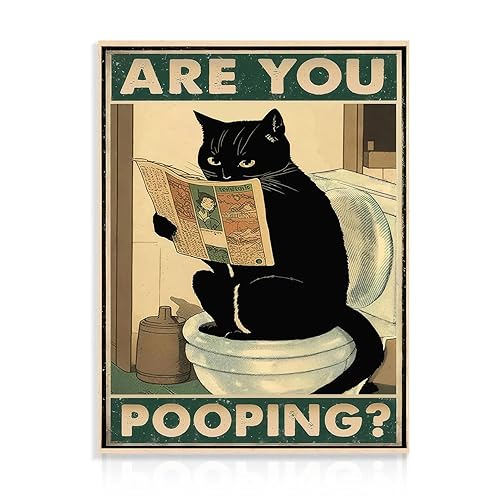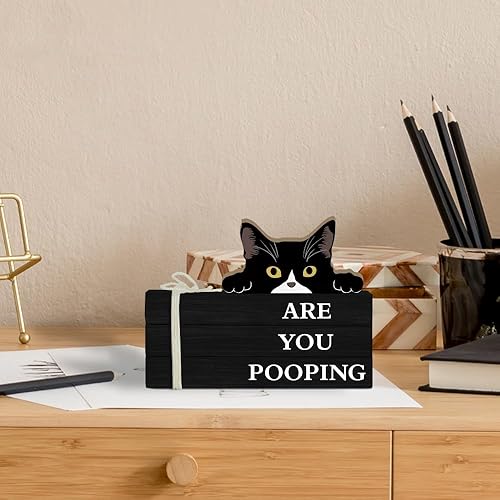Do you ever wonder how cats seem to know exactly where to go when nature calls? It’s fascinating how they can find the perfect spot to do their business, even if they’re indoors. Whether you’re a cat owner or simply curious about feline behavior, understanding why cats have this innate ability is intriguing. In this article, we’ll explore the reasons behind cats’ impeccable pooping instincts and shed some light on this mysterious aspect of their behavior.

If you’ve ever observed a cat using a litter box, you may have marveled at their precision. Cats have an incredible sense of smell, which plays a crucial role in their poop-finding abilities. Their keen noses can detect the scent of their own waste, guiding them to the exact spot where they’ve previously eliminated. This remarkable olfactory sense allows cats to establish a consistent bathroom routine, even in unfamiliar surroundings.
Another factor that contributes to cats’ remarkable pooping skills is their innate instinct for cleanliness. Cats are naturally clean animals and have a strong aversion to soiling their living spaces. When given the option, they will always choose a suitable place to eliminate, such as a litter box or a designated outdoor area. This instinctive behavior is deeply ingrained in their DNA, ensuring that they maintain a hygienic environment for themselves and their surroundings.
So, the next time you watch your cat effortlessly find their way to the litter box, remember that their exceptional sense of smell and their instinct for cleanliness are the driving forces behind their pooping prowess. Understanding these fascinating aspects of feline behavior not only deepens our appreciation for our furry friends but also helps us provide them with the best possible care.
The Instinct of Cats
As a cat lover, you may have marveled at how your furry friend always seems to know exactly where to go when nature calls. It’s as if they have an innate GPS system guiding them to the perfect spot to do their business. Well, the truth is, they do!
Cats have a remarkable instinct when it comes to finding the ideal place to eliminate. This instinct is rooted in their strong sense of smell. Your cat’s nose is a powerful tool that can detect scents that are undetectable to you. It is said that cats have a sense of smell that is up to 14 times better than that of humans. So, when it comes to finding the exact spot where they’ve previously eliminated, their superior olfactory senses come into play.
This is why it’s important to provide your cat with a clean litter box. By removing their waste promptly and thoroughly, you’ll help minimize any lingering smells that could confuse your cat. Remember, your furry friend’s sense of smell is their primary tool for navigating their environment, so keeping their litter area clean is key.
Another factor influencing a cat’s instinctual behavior is their natural inclination towards cleanliness. Cats are known for their fastidious grooming habits, and this extends to their elimination habits as well. They prefer to eliminate in a clean and private spot, away from their eating and sleeping areas. So, providing them with a designated litter box that is easily accessible and away from any distractions is essential.
Understanding the instinctual behavior of cats not only helps us appreciate our feline companions more fully but also guides us in providing them with the best care. By catering to their instinctual needs, such as providing a clean litter box and a suitable elimination area, we can ensure their comfort and happiness.
Understanding Cats’ Sensory Abilities
As a cat lover, enthusiast, and expert, you’re probably amazed at how cats always seem to know where to do their business. Well, let me tell you, it all comes down to their incredible sensory abilities. Cats have an extraordinary sense of smell, which plays a crucial role in guiding them to the perfect spot to relieve themselves.
1. The Power of their Nose
Cats’ noses are highly sensitive, with over 200 million scent receptors. To put that into perspective, humans only have around 5 million scent receptors. This amazing olfactory system allows our feline friends to detect even the faintest of smells, including the scent of their urine and feces.
2. The Scent Map
When a cat eliminates, it leaves behind a scent that acts as a type of “map” for future bathroom trips. Cats have a keen memory for smells and can recognize their own individual scent, even days after elimination. This built-in mapping system helps guide them to the same spot when nature calls again.
3. The Litter Box Connection
Understanding a cat’s instinctive behavior is key to providing them with the best care. Cats are naturally clean animals, and they prefer to have a designated area to do their business. This is where the litter box becomes essential. By offering a clean and accessible litter box, you’re ensuring your cat has an appropriate place to eliminate, which aligns with their natural instincts.
4. Outdoor Elimination
For cats with outside access, they will often choose a designated outdoor area to do their business. This can be a patch of grass or a specific spot in the yard. They rely on their powerful sense of smell to find these areas and continue to use them over time. By providing a secure and well-maintained outdoor area, you’re helping your cat maintain their natural tendencies.
Understanding how cats rely on their sensory abilities, specifically their sense of smell, gives us a deeper appreciation for their intuition when it comes to eliminating. By creating an environment that aligns with their natural instincts and providing suitable options, such as a clean litter box or a secure outdoor area, you’re ensuring that your furry friend has the best possible bathroom experience. So, keep supporting your cat’s natural behavior, and they’ll continue to amaze you with their impeccable potty skills.
The Role of Smell in Cat Behavior
As a cat lover, you may have wondered how your furry friend always seems to know exactly where to go when nature calls. It turns out that cats have an amazing sense of smell that plays a crucial role in their behavior, including their bathroom habits.
Cats have an incredible 200 million scent receptors in their noses, compared to humans’ mere 5 million. This makes their sense of smell far more powerful than ours. With such heightened olfactory abilities, they are able to detect even the faintest of smells, including their own waste.
When a cat eliminates, it leaves behind a unique scent that acts as a “map” for future bathroom trips. This scent, which is undetectable to our human noses, contains specific chemical markers that guide them back to the same spot each time. It’s like they have an internal GPS system that helps them find their way back to their preferred restroom.
Understanding the importance of smell in cat behavior is essential for providing optimal care. Cats are naturally clean animals and prefer to have a designated area to do their business. Whether it’s a litter box indoors or a specific outdoor spot, having a consistent spot for them to eliminate in satisfies their natural instincts.
To help your feline friend feel comfortable and secure, it’s important to choose a litter box and litter that they find appealing. Cats have preferences when it comes to the type of litter (clumping or non-clumping), the depth of the litter, and even the scent. Experimenting with different options can help you find the right match for your cat’s needs.
By understanding and accommodating your cat’s natural instincts, you can create an environment that promotes their well-being and happiness. So, the next time you watch in awe as your cat effortlessly finds their way back to their designated bathroom spot, remember that their amazing sense of smell is guiding them every step of the way.
Cats’ Natural Preferences for Elimination Sites
As a cat lover, you may have wondered how your furry friend always knows where to go when nature calls. Well, it turns out that cats have some pretty impressive instincts when it comes to finding their perfect bathroom spot. Let’s delve into their natural preferences for elimination sites.
1. Familiar scents guide their way
Cats have an incredible sense of smell, which is about 40 times stronger than ours. They possess over 200 million scent receptors in their noses, allowing them to detect even the faintest odors. When a cat eliminates, they leave behind a unique scent that acts as a “map” for future bathroom trips. This scent serves as a familiar marker, guiding them back to the same spot every time.
2. The power of location, location, location
Cats are creatures of habit and prefer to have a designated area for their business. Whether they are kept indoors and use a litter box or have access to the outdoors, they will always seek out the perfect spot. They are attracted to certain surfaces, such as soft soil or sand, which resemble their natural outdoor environment. By choosing a familiar substrate, they create a comfortable and natural elimination spot.
3. Privacy is key
Just like us, cats appreciate a little privacy when they’re doing their business. They seek out quiet and secluded areas where they won’t be disturbed. This is why you might find your furry friend hiding in a corner or seeking out a cozy nook in your home. By providing them with a quiet and peaceful environment, you ensure that they feel safe and secure while taking care of their needs.
4. A clean space is a happy space
Cats are known for their cleanliness, and this extends to their elimination habits as well. They prefer to have a clean and well-maintained bathroom area. Scooping their litter box regularly or providing a fresh outdoor spot encourages them to continue using the same space. It’s important to keep their chosen elimination spot free from any smells, as they may be deterred from using it if it becomes too dirty or unappealing.
Understanding your cat’s natural preferences for elimination sites is crucial for providing them with the best possible care. By catering to their instincts and creating comfortable and clean bathroom areas, you can ensure that your feline friend is always happy and content. So, next time your cat effortlessly finds their way to the perfect spot, remember
Do Cats Learn Where to Poop?
As a cat lover, you may wonder how your feline friend always seems to know exactly where to go when nature calls. Well, the truth is that while cats may not necessarily “learn” where to poop in the same way we humans do, they do rely on their instincts and preferences to find the perfect bathroom spot.
Cats have a highly developed sense of smell, which plays a crucial role in their bathroom habits. When they eliminate, they leave behind a unique scent that acts as a “map” for future bathroom trips. This scent is created by special glands in their paws and anal region, and it signals to them and other cats that this is an appropriate place to do their business.
While cats may not consciously learn where to poop, they do have a natural inclination to seek out certain surfaces that resemble their outdoor environment. They are often attracted to loose, sandy substrates that mimic the feel of soil or gravel. This is why many cats prefer litter that has a soft, sandy texture.
Privacy is also a significant factor for cats when it comes to their bathroom habits. They prefer quiet and secluded areas where they can do their business undisturbed. This instinct is rooted in their instinctual behavior as solitary hunters in the wild. Providing them with a private and enclosed litter box can help satisfy this need for solitude.
Cleanliness is another aspect that cats value in their bathroom area. Cats are known for their cleanliness and grooming habits, and they prefer a well-maintained litter box. Regularly scooping the litter, keeping it clean, and changing it frequently are essential for keeping your cat satisfied and preventing them from seeking alternative spots to relieve themselves.
So, while cats may not “learn” where to poop in the same way we do, they rely on their instincts, sense of smell, and preferences to find their perfect bathroom spot. Understanding their natural inclinations and providing a clean, private, and appropriate litter box will help ensure your feline friend is comfortable and content.
Conclusion
Understanding why cats know where to poop is essential for providing them with the best care. Cats rely on their instincts and preferences to find the perfect bathroom spot. Their strong sense of smell allows them to detect and follow their own unique scent, which acts as a “map” for future bathroom trips. They are naturally attracted to surfaces that resemble their outdoor environment, such as loose, sandy substrates.
Privacy is also crucial for cats when it comes to their bathroom habits. They prefer quiet and secluded areas where they can do their business without feeling exposed or vulnerable. Creating a designated space that offers privacy can help ensure that your cat feels comfortable and secure during their bathroom time.
Additionally, cats value cleanliness and prefer a well-maintained litter box. Regularly scooping and cleaning the litter box is important to keep it fresh and appealing to your cat. Providing multiple litter boxes in different areas of your home can also give your cat options and prevent any accidents.
By understanding and accommodating these natural preferences, you can create an environment that meets your cat’s needs and promotes good litter box habits. This will help ensure that your furry friend remains happy and healthy.
















